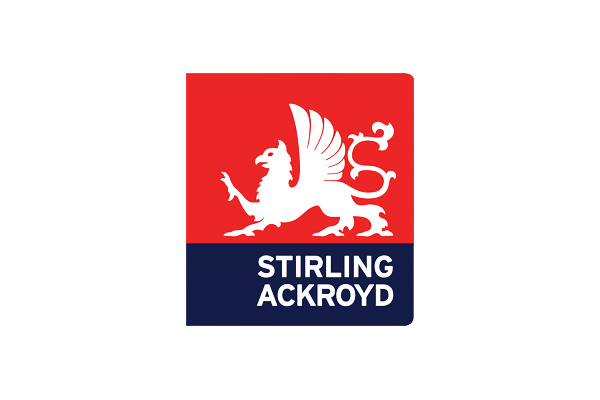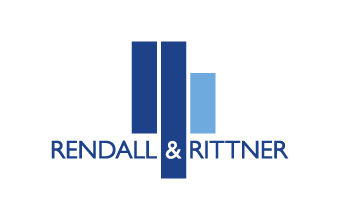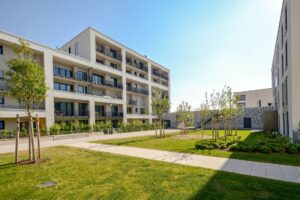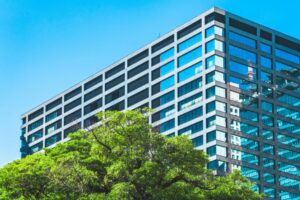Master London block management by understanding essential services, navigating legal...
Read MoreUnderstanding average residential block maintenance costs in London (£2,500 per unit), potential cost variations, and the importance of proactive maintenance empowers residents and block managers to create thriving and financially sound communities.
Want to Streamline Your Block Maintenance?
OneBlock Offers:
UK Companies Who Trust Us With Their Property Maintenance






Living in a block in London offers a vibrant and convenient lifestyle, with close proximity to amenities and a sense of community. However, for both residents and block managers, understanding the financial realities of maintaining a well-functioning block is crucial. This article delves into the average annual maintenance expenditure for residential blocks in London, explores cost considerations for commercial blocks, and offers tips for navigating the block maintenance landscape.
Article Summary:
- This section explores the average annual maintenance expenditure for residential blocks in London.
- It highlights factors influencing maintenance costs and explores resources for budgeting.
Understanding Average Costs: Budgeting for Residential Block Maintenance
The average annual maintenance expenditure for residential blocks in London is estimated to be around £2,500 per unit. This translates to a significant sum for larger blocks: a 100-unit block could expect annual maintenance costs to reach approximately £250,000. It’s important to remember that this is an average figure, and actual expenses can vary depending on several factors:
- Block size and type: Larger blocks with more amenities like elevators, gyms, or communal gardens will naturally incur higher maintenance costs compared to smaller, simpler buildings.
- Age and condition of the building: Older buildings might necessitate more frequent repairs and upgrades compared to newer ones.
- Location: Blocks in central London might have higher costs associated with waste disposal, security, or contractor fees compared to those in outer boroughs.
- Maintenance approach: Proactive maintenance, which prioritises preventative measures and regular inspections, can lead to cost savings in the long run compared to a reactive approach that only addresses problems as they arise.
Resource for Budgeting:
- National House Building Council (NHBC): https://www.nhbc.co.uk/homeowners (Offers budgeting guidance and resources for residential property maintenance)
Staying Informed: Transparency and Communication
As a resident or block manager, understanding the breakdown of annual maintenance expenditure is key. Block managers should strive for transparency by providing clear annual budgets outlining expected costs for various maintenance categories, such as cleaning, repairs, utilities, insurance, and grounds maintenance.
“Open communication and resident engagement are essential for building trust and ensuring smooth block operation.” – Institute of Residential Management (IRM)
Commercial Blocks: A Different Cost Landscape
- This section explores the differences in maintenance costs for commercial blocks compared to residential ones.
- It highlights areas where commercial blocks might experience cost savings and areas where they can expect higher expenses.
While some core maintenance needs overlap between residential and commercial blocks (e.g., cleaning, repairs, utilities), commercial buildings generally face a slightly different cost landscape:
Potential Cost Savings:
- Economies of scale: Larger commercial blocks may benefit from economies of scale when negotiating service contracts with maintenance providers.
- Longer service intervals: Depending on the use of the space, some maintenance tasks, like cleaning, might be required less frequently compared to high-traffic residential areas.
Areas of Higher Expense:
- Specialised systems: Commercial blocks might have complex heating, ventilation, and air conditioning (HVAC) systems, fire alarm systems, and security protocols, requiring specialized maintenance and potentially higher service costs.
- Compliance regulations: Depending on the industry, commercial blocks might need to adhere to stricter regulations regarding hygiene, accessibility, or fire safety, leading to additional costs for certification and maintenance.
- Longer working hours: Blocks with extended use beyond standard business hours might incur higher costs for cleaning, security, and other services.
Pro Tip for Commercial Block Managers:
Consider partnering with a block management company specialising in commercial properties. They can leverage their experience and industry knowledge to secure competitive service contracts, ensure regulatory compliance, and optimise maintenance strategies for your specific needs.
Navigating the Block Maintenance Maze: Top Tips for Residents and Block Managers
- This section offers tips for residents and block managers to navigate the block maintenance landscape in London.
- It highlights the importance of proactive maintenance and resident engagement.
Whether you’re a resident or a block manager, understanding your responsibilities and actively participating in the maintenance process are crucial for a smooth-running and financially stable block. Here are some tips:
- Residents:
- Review annual budgets and maintenance plans presented by block managers.
- Report any maintenance issues promptly to help address problems early on.
- Consider attending block meetings to stay informed and provide feedback.
- Block Managers:
- Develop a comprehensive maintenance plan outlining preventative maintenance schedules for all building systems and components.
- Prioritise regular inspections to identify and address potential problems before they become major issues.
- Seek competitive quotes from qualified contractors for major repairs or replacements.
- Foster open communication with residents and encourage their participation in the decision-making process regarding block maintenance.
Building a Culture of Maintenance: Proactive is Key
The adage “a stitch in time saves nine” rings true for block maintenance. Adopting a proactive approach focused on preventative measures can lead to significant cost savings in the long run. Here’s why:
- Early detection, early intervention: Regular inspections can identify minor issues before they escalate into costly repairs.
- Extending lifespan of assets: Preventative maintenance helps ensure building systems and components function optimally for a longer period, delaying the need for expensive replacements.
- Reduced disruption: Addressing minor issues promptly minimises the need for disruptive and inconvenient major repairs later.
Resource for Proactive Maintenance:
Chartered Institute of Housing (CIH): https://www.cih.org/ (Offers resources and guidance on proactive maintenance strategies for residential properties)
Beyond Budgets: The Value of a Well-Maintained Block
While financial considerations are important, the benefits of a well-maintained block extend beyond cost savings. Here’s how:
- Increased property value: Blocks with a reputation for proactive maintenance and a well-maintained appearance tend to command higher property values, benefiting both residents and owners.
- Enhanced resident satisfaction: A clean, safe, and functional living environment contributes to a higher quality of life and increased resident satisfaction.
- Reduced risk of legal issues: Neglected maintenance can lead to health and safety hazards, potentially resulting in legal disputes between residents and block management.
Investing in a Thriving Block Community
Ultimately, responsible block maintenance is an investment in the future of your building and its community. By understanding average costs, navigating cost differences between residential and commercial blocks, and adopting a proactive approach, residents and block managers alike can ensure their block remains a safe, comfortable, and financially sound place to live or work.
Last Thoughts
Navigating the world of block maintenance in London can feel overwhelming. However, by equipping yourself with the right knowledge and resources, you can contribute to a thriving block environment. Remember:
- Average annual maintenance expenditure for residential blocks in London sits around £2,500 per unit.
- Factors like block size, age, location, and maintenance approach influence costs.
- Commercial blocks might see economies of scale but face higher expenses for specialised systems and regulations.
- Proactive maintenance and resident engagement are key to optimising block costs and resident satisfaction.
More block maintenance related articles
10 Myths About Block Maintenance Busted: Separating Fact from Fiction for London Block Managers
Ditch block maintenance myths: choose OneBlock for cost-effective, sustainable, and...
Read More5 Hacks for Organising Your Next Block General Meeting
Transform your chaotic block meetings into calm and productive gatherings...
Read More30 Calls, £50,000 Later: The High Cost of Ignoring Block Maintenance
With an average of 30 costly emergency callouts per month...
Read More



